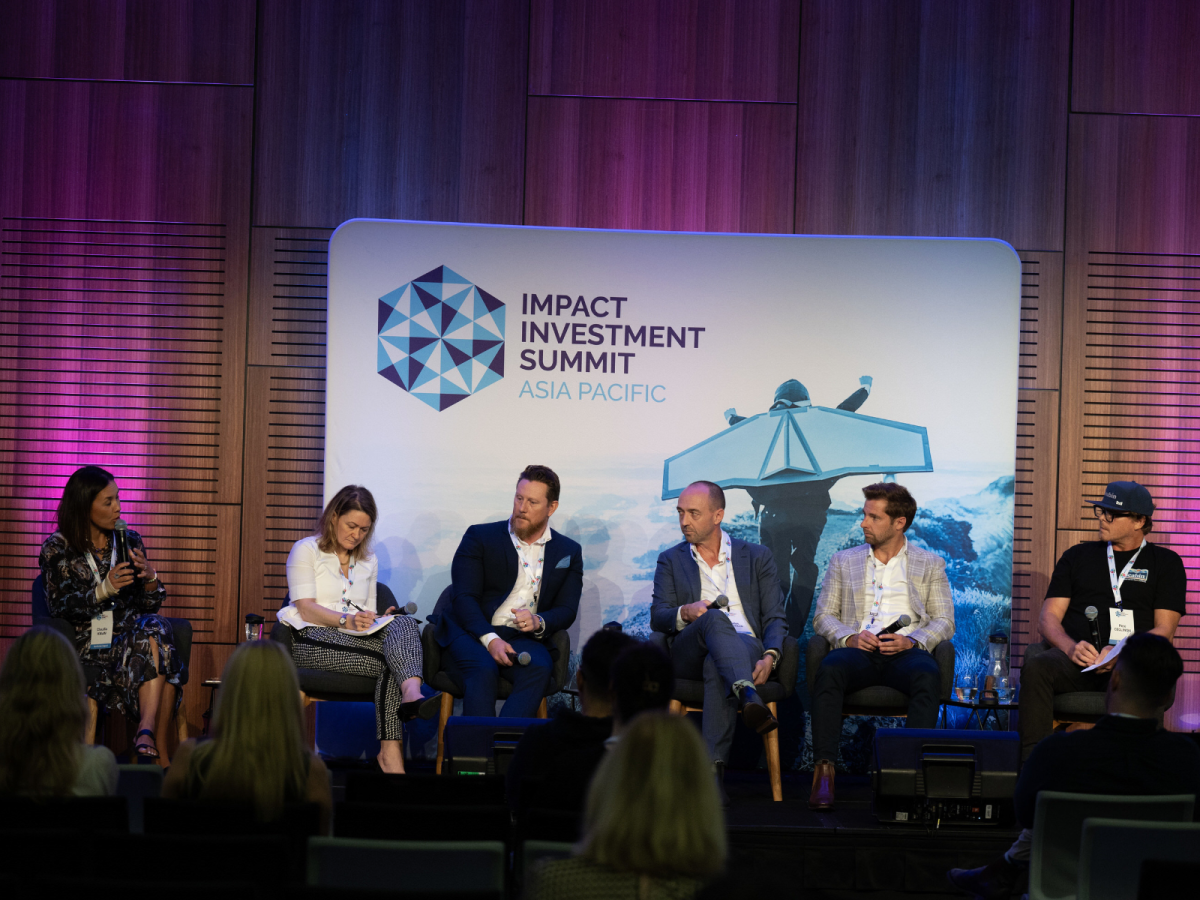At the recent Impact Investment Summit, I moderated the panel, “Eliminating Waste, Maximizing Impact – Resource Reuse for Environmental Gain” with a group of intentional and outcome-driven panelists from Seabin, Dragonfly Enviro Capital, Meilor Investment Management, Lombard Odier and Electrolux, all of whom are approaching the challenge of eliminating waste with considered strategies.
Waste and Circular Economy is a key impact focus area for NorthStar. While waste is not a sexy topic, it is estimated that there is a 10% carbon abatement opportunity for Australia by applying good resource recovery and recycling processes to our waste streams. PWC estimates that 45% of Australia’s net zero goals will be achieved by circular economy outcomes.
Australia is falling short of the existing National Waste Policy & Action Plan, which sets out seven national targets, including an average 80% recovery rate from all waste streams by 2030.
Waste and the Circular Economy are big impact opportunities.
NorthStar has researched or invested in many Australian and global circular economy, waste management and recycling companies. Locally, these include Close The Loop, Cleanaway, The Environmental Group, LGI, and Sims Metal. Global companies include Ranpak, Danimer Scientific, Origin Materials, Waste Management, and Veolia. These companies are having varying degrees of success commercialising waste and circular economy solutions.
The panel talked to the activities of their own companies and investee companies in addressing the challenges in the waste sector. The issues raised included the collaborative nature of the solutions required to achieve a circular economy, the importance of data in understanding the challenges, finding scalable and commercially viable technologies that address these problems, the role of waste creators, and the importance of regulation.
Seabin provides a tech solution that collects data on waste in water streams. In July 2020, backed by thousands of community members and local businesses, they self-funded a world-first city pilot to monitor the health of the waterways and clean up the plastic pollution in Sydney Harbour. The need to identify where the waste is coming from, be it parking tickets or fireworks, and targeting the creators of that waste was an important finding to solving the plastics filtering into the Sydney Harbour. Since July 2020, Seabin have filtered 23.6 billion litres of water capturing over 122 tonnes of microplastics and marine litter.
In 2023 alone, 9.23 billion litres of water were filtered capturing 4.7 million plastic items, 54% of which were microplastics.
Dragonfly Enviro Capital is a private equity investor with investments in Jetzero, Pacific Bio, and The Water Carbon Group. Jetzero is solving the aviation fuel impact challenge by producing sustainable aviation fuel. It is an example whereby there is a market which has the scale and the economics to make financial returns alongside environmental impact.
Many circular economy businesses have failed due to the lack of economies of scale, often caused by insufficient buyers of their circular economy solutions. The “big end of town” including the larger ASX-listed companies, have to step forward and commit to waste reduction in order to provide a marketplace for the solutions.
Melior Investment Management is an Australian equities specialist fund manager focused on generating competitive financial returns with positive social and environmental impact. Melior discussed how they have tracked the percentage of companies in their portfolio and across the ASX300 that have implemented waste reduction targets in their operations. As of 31 December 2023, 41% of the portfolio companies have a waste reduction target, compared to 22% for the ASX 300.
Their work has identified the need for Australia’s largest companies to identify and commit to waste reduction. The vision would be to go a step further and ensure that those companies not only have targets but tie those targets to remuneration to show a financial commitment to waste reduction and increased circularity.
An absolute reduction of waste created is always the straightest line to waste reduction. However, given the focus on GDP growth, demand destruction of waste doesn’t seem likely. Lombard Ordier Investment Managers aim to preserve and grow their client’s assets guided by a philosophy to ‘rethink everything’. They advocate for the need to transition to a sustainable global economy that is Circular, Lean, Inclusive and Clean. Their investments include 900.care that sells cosmetics in powder sticks that can be diluted with water to recharge the initial bottle. This would require no new bottles to be purchased when more shampoo is required. The interesting component of this is the strong financial outcomes that result from the company’s reduction of logistics and packaging costs.
Kurt Hevgold from Electrolux, with a wealth of experience in the appliance industry, is supporting regulation to make it as effective as possible in reaching the desired outcome of reducing waste and increasing circularity. His insights, backed by his experience working in the industry, on how to optimize for industry waste reduction outcomes are powerful and we look forward to seeing more of his team’s work in supporting the industry to get to where we all want it to be – more circular!
If you would like to know more about the opportunities to support the above organisations, please contact Claudia on Claudia.kwan@northstarimpact.com.au.

